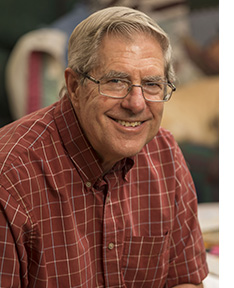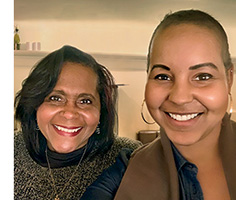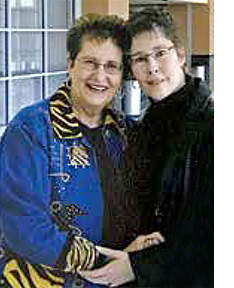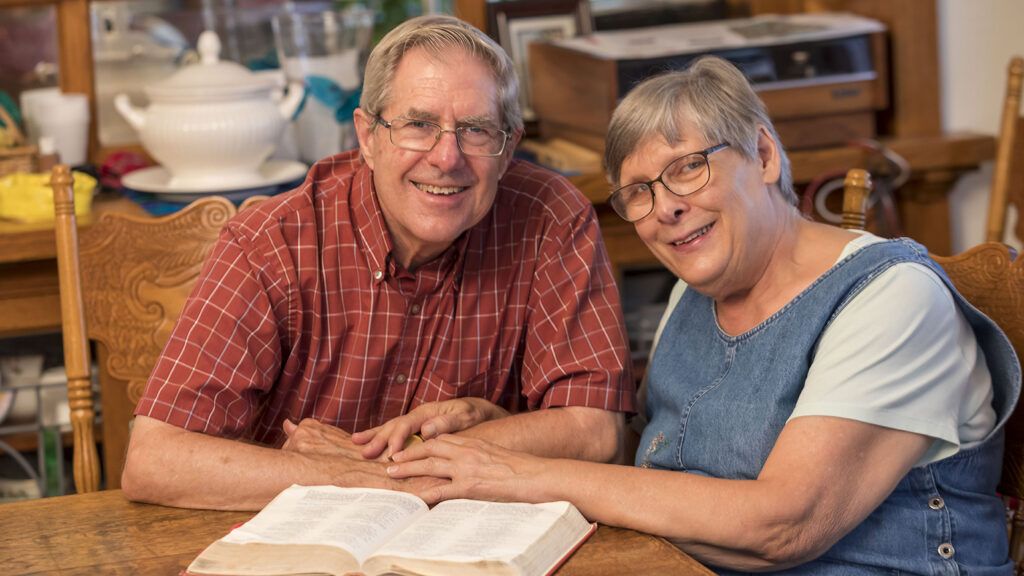“There are only four kinds of people in the world,” former First Lady Rosalynn Carter has said. “Those who have been caregivers. Those who are currently caregivers. Those who will be caregivers and those who will need caregivers.” A sobering thought but a reality we’re all likely to confront at some point in our lives. As someone who once cared for a friend with cancer and also briefly needed a caregiver myself after an operation, I thought I had a decent handle on the subject.
Then I became the editor of Strength & Grace, our bimonthly devotional magazine focused on caregiving, and found I still had a lot to learn. What has struck me the most are all the ways in which our writers illuminate the journey of caregiving—the stresses and struggles as well as the opportunities for emotional and spiritual growth. I’d never thought of caregiving quite that way before: an opportunity not only to get to know our loved ones better but also to examine our relationships with God and with ourselves.
In the past, whenever I’d considered the possibility of one day becoming a caregiver for one or both of my parents, the truth is I started to panic. But after reading and editing our contributors’ devotions, which are equally pragmatic and inspiring, I’ve found my panic immeasurably lessened. Though our caregivers never sugarcoat the multitude of challenges they face, the moments of unsurpassed poignancy, deepening bonds and— yes—joy help balance the load. Here, three of our writers share their stories and hard-won advice with you.

Norm Stolpe
Milwaukee, Wisconsin
Norm Stolpe’s life was upended when his wife, Candy, was diagnosed with Alzheimer’s disease five years ago, after wandering from their home in the middle of the night. A retired pastor, Norm shifted his calling from caring for congregations to caring for Candy. “We’re constantly adjusting to the daily changes in our new normal,” Norm says. “Clinging to the past is inevitably frustrating.”
Instead, he makes a point of finding joy in the moment, especially in celebrating Candy’s small victories, such as when she beats him at Scrabble. “Joyous moments are actually holy moments,” Norm says. He keeps a calendar and, in each day’s two-inch box, writes the specific moment of joy that day brought. He calls these his awareness-of-God boxes. “So much of life is paying attention,” Norm says. “If you cultivate and expect joy, you’ll see the little things you might otherwise take for granted.”
Such as Candy’s continued contributions in the kitchen. She can’t bake anymore because of the precision required, but she still prepares the couple’s soups and salads. “I’m glad I can still do something around here!” Candy often says with a laugh. She also makes the bed many days, although she now has difficulty with hand-eye coordination. “If it’s lumpy, I can deal with that,” Norm says. The couple do the dishes together; he washes and she dries and puts away the dishes. Most important, when they pray aloud together, Candy still takes her turn.
Sometimes Candy voices regret that she can’t do something she used to do. Norm will remind her of all she’s given in their half-century together. “We all want to feel as if we’re contributing,” Norm says, “so I take great pains to assure Candy of her continued worth—to me, to her family, to God. I’m still awakening to recognizing that this Alzheimer’s journey is a reciprocal partnership in which God prospers the work of the hands of both of us.”

Edwina Perkins
Cary, North Carolina
Two years ago, Edwina Perkins’s 29- year-old daughter, Danielle, was diagnosed with breast cancer. Edwina temporarily moved to New York City to take care of her during chemotherapy. A breast cancer survivor herself, Edwina knew firsthand how tough it was going to get for her daughter. What she didn’t anticipate, however, was how tough it was going to be for her. Edwina had high expectations for her role as caregiver. “I was going to be Wonder Woman,” she says.
Edwina tried to anticipate Danielle’s every want and need, from food cravings to trips to the bathroom. She was soon exhausted—but afraid of letting her daughter down. “Instead of looking at the good I was doing, I was constantly looking at the ways I’d fallen short,” she says.
One afternoon when Danielle asked for another piece of fruit, which would have meant a third trip to the store within a few hours, Edwina had to say no. At first, she felt guilty but then realized she was making a healthy decision for both of them. “I still needed to have certain boundaries so I could take care of myself. If not, I wouldn’t be able to take care of her.” And guess what? Danielle was fine with it.
Edwina prayed for the ability to give herself the same grace she so readily granted to others. “With God’s help, I gave myself the permission not to be perfect, even as a caregiver.”

her mother, Lucille
Pamela Haskin
Sulphur Springs, Texas
Pamela Haskin’s mother, Lucille, was diagnosed with a form of Parkinson’s disease at age 71. Although her mom was a positive person, with a surprisingly good attitude about all she was enduring, she sometimes fell into self-pity as her struggles grew more painful and difficult. “It’s neither healthy nor helpful to allow her to remain in that state for long,” Lucille’s home health nurse told Pamela.
“My main goal became refocusing Mom’s attention when she was feeling down or sorry for herself,” Pamela says. “I brainstormed and prayed for creative ways to encourage her.” When her mother lamented not feeling pretty anymore, Pamela painted her mom’s nails bright red. When Lucille could no longer walk well enough to go on shopping trips, Pamela convinced the manager of her favorite boutique to let her take items out to the car so her mom could “shop” from there.
When her mom complained of feeling useless, Pamela asked her to think of things she could still do for others. With Pamela’s help, her mom made calls to friends and even sent flowers and cards.
“I looked for ways to turn every task into an adventure,” Pamela says. “Something that would distract her from her pain and frustration or, better yet, make her laugh. Mom had always been such an easy laugher, and I felt it was part of my job to bring her back to laughter.”
On days when even the shortest walks were tiring, Pamela would tell her mother to focus on the wall hanging across the living room, emblazoned with the word Jesus. “‘Walk to Jesus’ became our mantra,” Pamela says. “When either of us encountered an obstacle in our lives, we would remind the other to walk to Jesus.”






